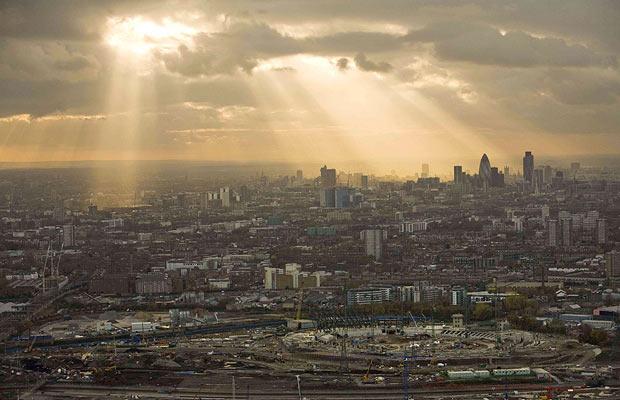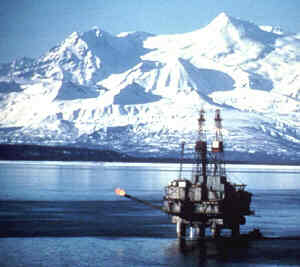239: Massive tax hike for UK wealthy employed - plus global inflation-deflation picture
11-30-2008
A. Massive tax hike for wealthy employed – and massive tax reduction of property investors
PropertyInvesting.net team
Employee – penalty : Just in case it escaped your notice, Chancellor Darling a gain massively increased the tax take of the wealthy employee at his Pre-Budget Speech. In 2011, anyone earning over £150,000 will be taxed at an income tax rate of 45%. Interpreting this – it also implies all bonuses and stock options will be taxed at this increased rate – up from 40% to 45%. National insurance will also rise by another 0.5%. By 2011, many people in
gain massively increased the tax take of the wealthy employee at his Pre-Budget Speech. In 2011, anyone earning over £150,000 will be taxed at an income tax rate of 45%. Interpreting this – it also implies all bonuses and stock options will be taxed at this increased rate – up from 40% to 45%. National insurance will also rise by another 0.5%. By 2011, many people in
Self Employed Investor - benefits: So now let’s compare this with a self employed property investor. Recently, capital gains tax was reduced from 40% to 18%! VAT was reduced from 17.5% to 15%. VAT is exempt from any property that is a renovation above shops in an empty property. You can offset all your earnings against expenses. So you should be able to stay well beneath the 40% or 45% income tax  bracket. Stamp duty is exempt from any property costing less than £150,000. You can also roll properties into a REIT. Clearly – your tax bills have drastically dropped in the last few years thank goodness. Though this of cause has not been enough to prevent house prices drops – hardly surprising as the average employee has been squeezed so hard, they cannot pay high property prices any longer. Meanwhile, first time buyers have disappeared almost completely.
bracket. Stamp duty is exempt from any property costing less than £150,000. You can also roll properties into a REIT. Clearly – your tax bills have drastically dropped in the last few years thank goodness. Though this of cause has not been enough to prevent house prices drops – hardly surprising as the average employee has been squeezed so hard, they cannot pay high property prices any longer. Meanwhile, first time buyers have disappeared almost completely.
But just in case the government gets any bright ideas about increasing the tax burden on property investors, it is only because buy-to-let investors are bottom feeding at present that there is not further property price falls. Meanwhile the government is providing ever decreasing social housing – meaning private landlords – with government regulations – have stepped in to make up the shortfall in rental property provision. And if buy-to-let investors go under, this will have a huge negative impact on tenants and the general state of the housing market. Furthermore, it is almost impossible to get borrowing at present, particularly if you are a self employed property investor – and do not have any secure long term earned income from being an employee. Property investors who do not have jobs are struggling as banks refuse them lending. So please, no bright ideas to cream any further tax from property investors – it will only end in tier s.
s.
The actual point we are making is – it sucks being an employee since the tax burden is MASSIVE. Meanwhile, through starvation of funding, it’s very difficult for self employed property investors to survive unless that have a huge cash generating stable property investment portfolio. Banks view the self employed as high risk – particularly at present with property prices dropping.
But when the property market eventually improves and prices start rising again, then self employed property investors should benefit from more available funding, capital gains tax of 18% and the ability to reduce earned income to a minimum by offsetting against expenses – and reinvesting income into their property portfolios – to seek 18% capital gains tax consideration.
A final comment on petrol prices. When you buy a litre of petrol in the  about 80% of it’s needs). If there was no tax on petrol (as in
about 80% of it’s needs). If there was no tax on petrol (as in
Again, the point is – if you can break out of being an employee there are massive benefits. But you need to make sure you have a robust business and property portfolio before doing so. Don’t leave work then find you cannot get any borrowing from banks – otherwise you’ll be rapidly going back again with “your tail between your legs”! And you wont be getting any help with healthcare, company car, pension etc – for what they may (or may not) be worth.
B. Global Inflation (Deflation) and Currency Value Picture
Unlike previous recessions in 1971, 1981, 1991 and in certain countries 1999-2001, this financial and economic crisis is of global proportions and impact. Economies with free trade are far more inter-dependent now. Globalization has lead to outsourcing of goods and services to low cost centres in all parts of the world. Because of this, all economies are likely to slow more in tandem with each other. As a general rule, one would expect all GDPs to drop by about 3% on average as a very rough rule – so China’s GDP would drop to 9%, UK drop to -0.5%, Italy to -2%. Furthermore its across all asset classes, prices and growth have dropped – examples:
as a very rough rule – so China’s GDP would drop to 9%, UK drop to -0.5%, Italy to -2%. Furthermore its across all asset classes, prices and growth have dropped – examples:
-
Manufacturing
-
Oil prices
-
Metals and commodities prices
-
Property prices
-
Gold
-
Factory gate prices
Because of this, interest rates across the board will dramatically drop. Rather than one particular currency crashing. We are seeing a massive unwinding of (often speculative) positions and deflation of asset bubbles – across almost all asset classes. All currencies will come under pressure – and it’s difficult to  predict which ones will go completely out of favour. Oil prices crashing puts oil exporting nation’s currencies under pressure. Meanwhile – increased debit and attempts to bail out western (oil importing) nation’s banks will theoretically put these economies currencies under pressure. The next impact could be – all currencies stay more or less where they are against neighbouring currencies. Who would buy the Russian Ruble at the moment – even with interest rates at 12%? Or would you rather buy dollars with an interest rate of 1.5%? No-one really knows the answer.
predict which ones will go completely out of favour. Oil prices crashing puts oil exporting nation’s currencies under pressure. Meanwhile – increased debit and attempts to bail out western (oil importing) nation’s banks will theoretically put these economies currencies under pressure. The next impact could be – all currencies stay more or less where they are against neighbouring currencies. Who would buy the Russian Ruble at the moment – even with interest rates at 12%? Or would you rather buy dollars with an interest rate of 1.5%? No-one really knows the answer.
What we believe will happen is that western economies will massively borrow and print money – drop interest rates and try and inflate their economies again from Sept 2008 to Sept 2009. This may avoid a deep recession, but when the economies finally get going – say end 2009, unless the central banks are careful, GDP will rise sharply followed by inflation and interest rates – this could then lead to a further slowdown and recession – or a least a de-stabilized economic situation. Watch out for oil prices – currently at $54/bbl – if western economies successfully inflate, then oil demand will rise sharply again and because we have likely now reached “Peak Oil” (a bumpy plateau of maximum oil production), oil prices could then skyrocket – possibly as early as 2010 – inflation and high interest rates could then kick-in again. Expect turbulence. As oil investments drop end 2008 and oil production drops because of decreased demand – we might find a big shock when  demand recovers – that production does not! In fact, oil fields have depleted and oil production projects have been delayed through lack of bank funding. Thence oil prices could skyrocket again. Please note, from 2008 to 2030, some $26 Trillion of oil/energy investments are required to keep pace with energy demand – that’s about $1 Trillion a year – we can tell you – there is nothing even approaching this type of investment at this time – so expect problems in the future. The quicker we can convert to electric cars the better!
demand recovers – that production does not! In fact, oil fields have depleted and oil production projects have been delayed through lack of bank funding. Thence oil prices could skyrocket again. Please note, from 2008 to 2030, some $26 Trillion of oil/energy investments are required to keep pace with energy demand – that’s about $1 Trillion a year – we can tell you – there is nothing even approaching this type of investment at this time – so expect problems in the future. The quicker we can convert to electric cars the better!
So for property prices – there could be one last big inflation after this likely fairly brief recession – but it could be short-lived – and the canny investors will probably be looking to monetize at least part of their portfolios as the property prices start taking off – well before interest rates spike up again.
And for all those living in
If you have any comments, please contact us on enquiries@propertyinvesting.net

